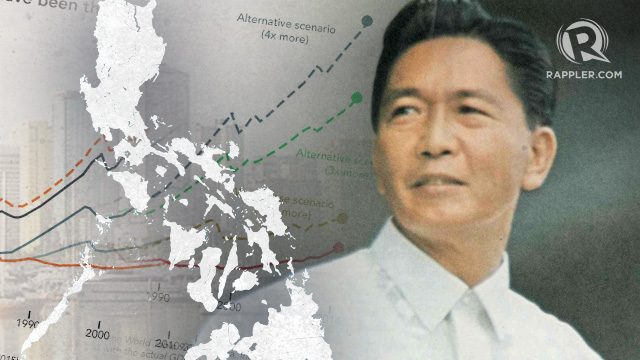From Noah Smith's "Indonesia: The most amazing development story on Earth?":
Now, you might say that a "cyberpunkly advanced" Indonesia is unrealistic, given its insane geographic constraints and size, stretching as large as Lisbon to Tehran. This is where you are debunked by one word: Java. Java is the key.
The island of 151 million is densely habitated, with more people living in it than in the entire Russia or the entire Japan. The northern coasts region are a flat biome of ricefields, like the Han plains or Kanto plains. Indeed, Java produces abundant food, in fact feeding the rest of the archipelago. It is also ethnically quite homogenous (Javanese & Sundanese being dominant), with Indonesian nationalism having been incredibly successful in staving of any ethnic dispute in Java (given the island is the imperial metropole, unlike say Aceh or Papua). Greater Jakarta, strategically located, is today the second largest metropolis in the world, around as large as Greater Tokyo. I will argue that the island is thus good for industrialization. Besides, Indonesia finished its independence process earlier than both Malaysia and South Korea.
So, with PODs no earlier than the proclamation of Indonesian independence in 17 August 1945, how do you make Indonesia as rich and industrialized as possible? Are there any possible downsides?
(After this, I will also propose my own scenarios: the Hatta Path and the Habibie Path)
So, Indonesia. A country with a GDP per capita of $4.3k, compared to Malaysia's $11,1k and South Korea's $40k. An Indonesia as rich as Malaysia would be the 7th largest economy in the world, larger than France. An Indonesia as rich as South Korea would be a truly leviathan 3rd largest economy in the world, twice that of Japan.Industrialization started in the 1960s... Suharto invested in infrastructure and education, stabilized the macroeconomy, and promoted free trade and entrepreneurship... foreign investment in manufacturing became significant. By the 1980s, Indonesia was becoming a powerhouse in exactly the kind of labor-intensive light manufacturing industries that countries are supposed to do early on in their arc of industrialization — clothes, fabrics, electronics assembly, and so on. Then everything came crashing to a halt in the Asian Financial Crisis of 1997... Indonesia’s democracy had begun, but its industrialization stalled... before the crisis, it was common for small manufacturing companies in Indonesia to become big companies, but this scaling-up process stopped after 1997-8. But starting in the early 2000s, there was another factor... the rise of China. A third factor might have been what economists call Dutch Disease — rising commodity prices in the 2000s made it more lucrative for Indonesian entrepreneurs to sell commodities instead of manufactured products.
Now, you might say that a "cyberpunkly advanced" Indonesia is unrealistic, given its insane geographic constraints and size, stretching as large as Lisbon to Tehran. This is where you are debunked by one word: Java. Java is the key.
The island of 151 million is densely habitated, with more people living in it than in the entire Russia or the entire Japan. The northern coasts region are a flat biome of ricefields, like the Han plains or Kanto plains. Indeed, Java produces abundant food, in fact feeding the rest of the archipelago. It is also ethnically quite homogenous (Javanese & Sundanese being dominant), with Indonesian nationalism having been incredibly successful in staving of any ethnic dispute in Java (given the island is the imperial metropole, unlike say Aceh or Papua). Greater Jakarta, strategically located, is today the second largest metropolis in the world, around as large as Greater Tokyo. I will argue that the island is thus good for industrialization. Besides, Indonesia finished its independence process earlier than both Malaysia and South Korea.
So, with PODs no earlier than the proclamation of Indonesian independence in 17 August 1945, how do you make Indonesia as rich and industrialized as possible? Are there any possible downsides?
(After this, I will also propose my own scenarios: the Hatta Path and the Habibie Path)

